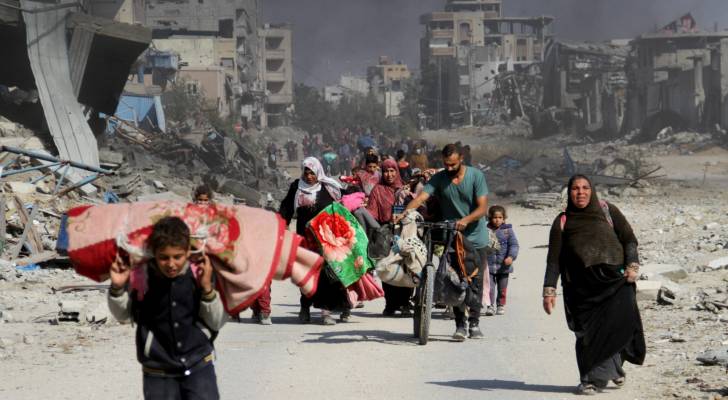(Photo: Getty Images)
Gaza under attack, ceasefire collapses: Key morning developments
Following the official end of the first phase of the Gaza ceasefire on March 1, "Israeli" airstrikes resumed this morning, killing four Palestinians and injuring five others.
With negotiations at a standstill and no clear resolution in sight.
Ceasefire negotiations, US involvement
"Israeli" negotiators returned from Cairo on Saturday after Hamas rejected an extension of the initial ceasefire phase. Meanwhile, US Secretary of State Marco Rubio announced a new military aid package for "Israel", totaling nearly USD 4 billion.
Rubio emphasized that the Trump administration has approved over USD 12 billion in arms sales to "Israel" since January, lifting conditions imposed by the Biden administration.
Netanyahu’s decision, US temporary truce proposal
"Israeli" Prime Minister Benjamin Netanyahu’s office confirmed that "Israel" agreed to a US-proposed temporary ceasefire for Ramadan and Passover. The proposal, outlined by US envoy Stephen Witkoff, consists of two phases:
- Phase One: Hamas would release half of the "Israeli" captives, both living and deceased, on the first day.
- Phase Two: The remaining captives would be released if both parties agree to a permanent ceasefire.
While "Israel" endorsed the proposal, Hamas has not accepted it, citing unmet conditions from previous agreements. Netanyahu’s office stated that Hamas's refusal to sign the deal led to the decision to halt the entry of goods and humanitarian aid into Gaza as of this morning.
Hamas’s response, "Israeli" political reactions
Hamas leader Mahmoud Mardaoui reiterated that regional stability hinges on progressing to phase two of the ceasefire. This includes discussions on a permanent truce, reconstruction of Gaza, and prisoner exchanges. Mardaoui accused "Israel" of evading its obligations and warned that manipulating agreements endangers captives.
Netanyahu's move to block humanitarian aid has sparked strong reactions. Hamas condemned the decision as a "war crime" and an "attempt to avoid negotiations," calling for international pressure on "Israel" to reverse the measure.
On the other hand, "Israeli" Finance Minister Bezalel Smotrich and former National Security Minister Itamar Ben Gvir supported Netanyahu's move, pushing for harsher measures, such as cutting off electricity and water to Gaza while resuming military operations.
Houthi threats, renewed attacks on Gaza
Houthi leader Abdul-Malik al-Houthi warned that any resumption of "Israeli" attacks on Gaza would provoke a large-scale military response. He vowed that if the war resumes, "the entire enemy entity will come under fire," pledging support through various military means.
Palestinian sources reported that "Israeli" airstrikes resumed early Sunday morning, killing at least 4 Palestinians and injuring 5 others.
According to Gaza health officials, this brings the death toll to 115 Palestinians and over 490 injuries since the ceasefire began on Jan. 19.
Over 400 violations by "Israel" have been reported since the agreement's implementation.
"Israel’s" military justified its actions by claiming it targeted individuals attempting to plant explosives near its forces in northern Gaza.
Families of captives, growing domestic criticism
Discontent is rising within Israel over Netanyahu's handling of the captives situation. A mother of an "Israeli" captive held by Hamas, quoted by "Israeli" outlet, accused Netanyahu of sacrificing captives for political survival, stating, "Netanyahu is burying the hostages for a handful of extremists."
This has led to mounting domestic pressure on Netanyahu's government to prioritize securing the captives' release.
Yesterday, protests filled the streets of Tel Aviv, with demonstrators demanding action and accountability from the government.
Current Status
As of Sunday morning, negotiations remain stalled, with no new diplomatic developments. Airstrikes and the suspension of humanitarian aid continue, and there are no signs of breakthrough in the deadlock.




